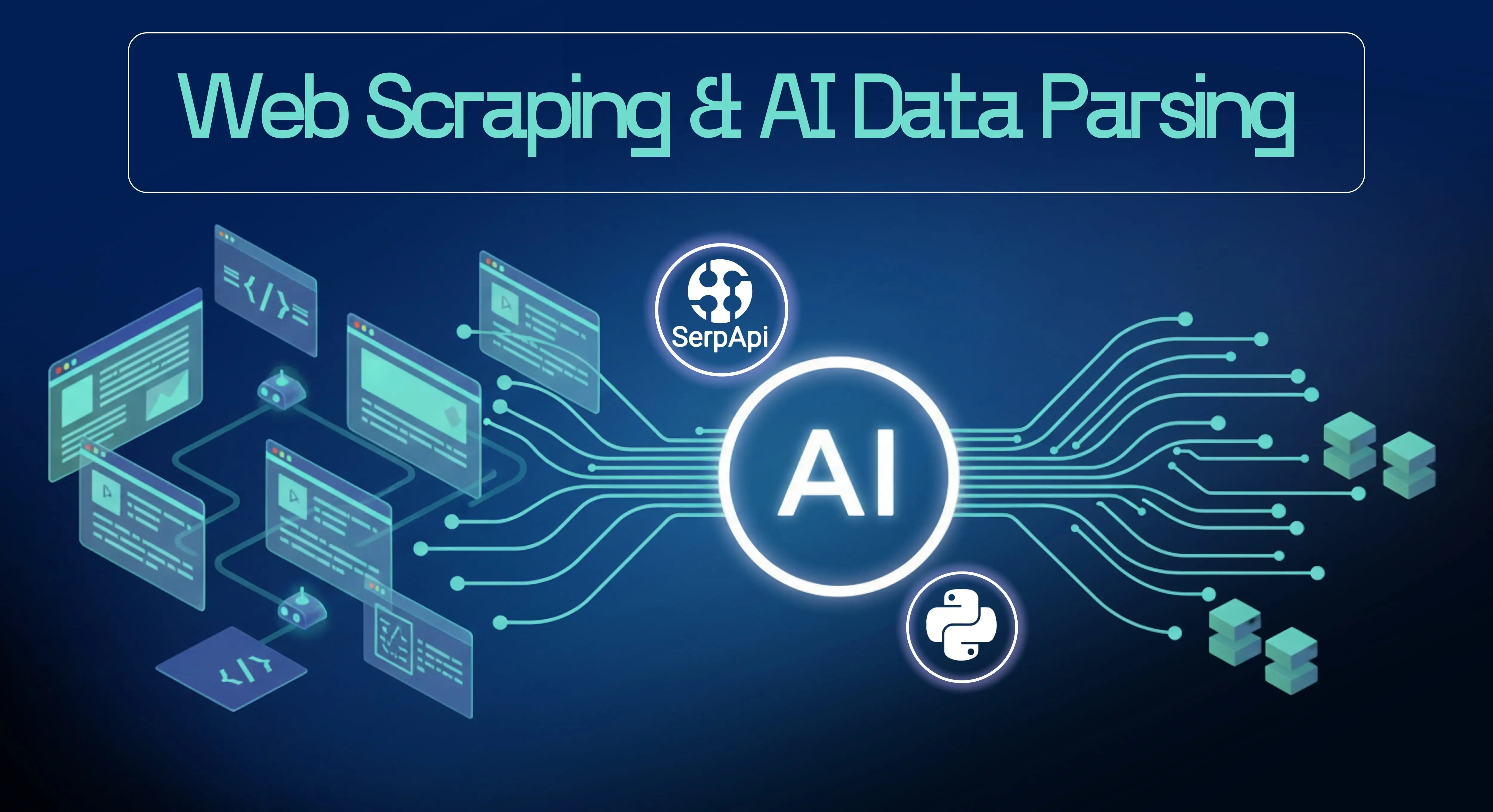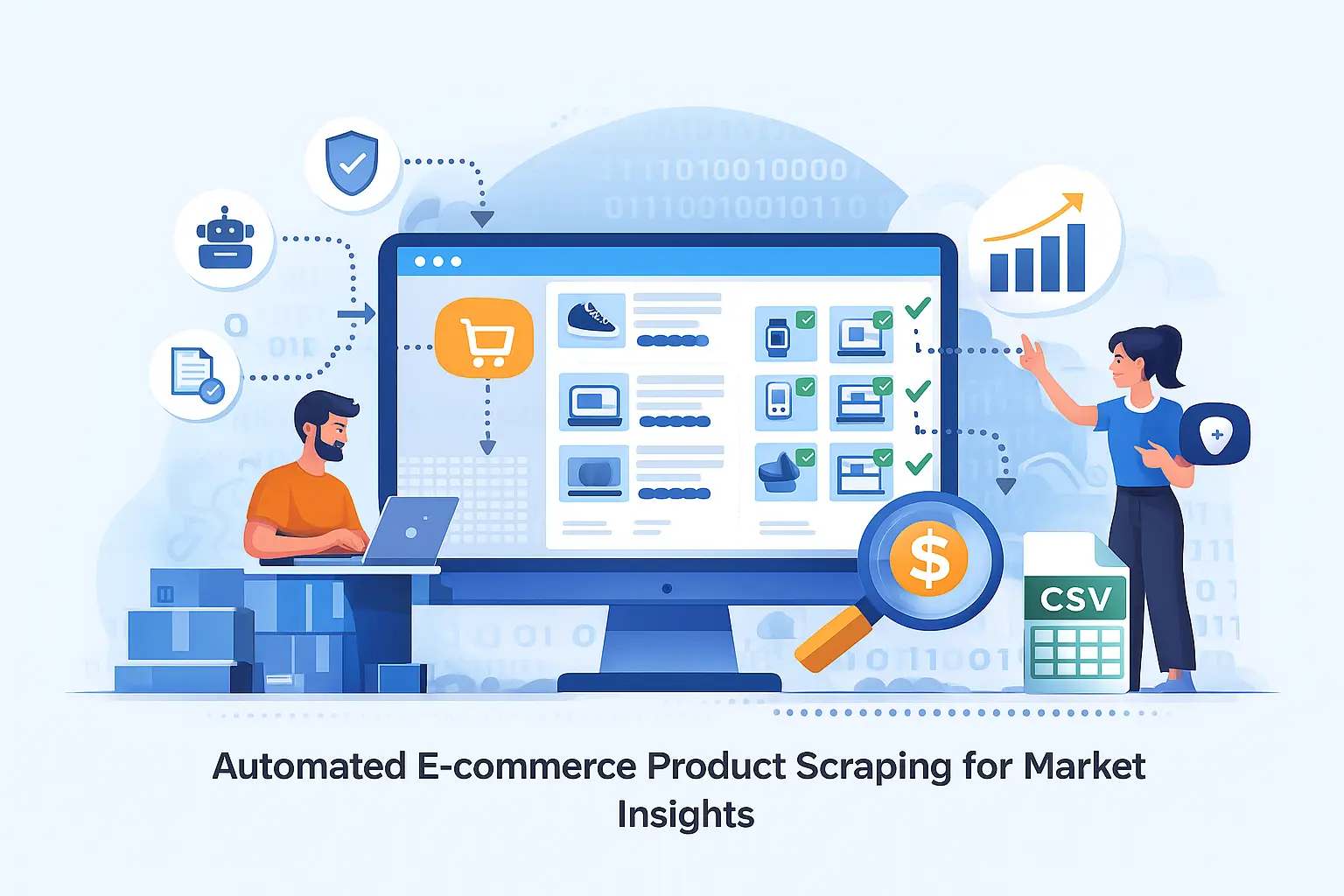
Project Overview
In today's digital era, our first instinct is to turn to the web to look up movies and shows. It offers endless information - from ratings and cast details to reviews and more. With this valuable data, writers can easily brainstorm new creative ideas and write content for stories that could become the next blockbuster.
Recently, a prominent author and film enthusiast approached us with a specific goal: building a comprehensive database of films featuring disability themes.
Our team developed an AI-powered data extraction solution that systematically collected and organized data from different authoritative sources, including Wikipedia, IMDB, and Google search results.
About the Client
As a writer in film and media research, our client wanted to study how disability is portrayed in movies. They needed to gather detailed film data - from cast information and accessibility features to audience reviews across different platforms - to support their creative process.
However, the manual collection of data was taking time away from their core work of writing. The client sought our services to automate this time-consuming process, allowing them to conduct more thorough research and come up with excellent content.

The Challenges
The client wanted to build a comprehensive database of films by gathering information from multiple platforms like IMDB, Wikipedia, and other Google search results pages. However, manual data collection from these various websites presented several challenges:
- Film platforms like IMDB and Rotten Tomatoes structured their data differently, making it time-consuming to find and extract relevant details from each place.
- The large volume of global film releases, including those focusing on disability, required constant monitoring for comprehensive coverage.
- Platform-specific search limitations like CAPTCHAs prevented third-party sources from scrapping data from websites.
- Differences in what qualified as a "film for disabled people" varied (e.g., films about disabilities, featuring disabled actors, or with accessibility features), creating complexity in data categorization.
- The platforms and the accompanying descriptions didn't specifically indicate if films included disability representation, making it difficult to identify and verify relevant content.

How Did We Fix This?
At Relu, we developed an AI data scraping solution to collect film data from Google search results, Wikipedia, and IMDB. The solution was specifically designed to identify and collect information about films focusing on disability, ensuring accurate results.
Here's exactly how the process went:
- Used SERP modules to extract relevant film information from search engine results
- Applied AI-based validation to verify each film's relevance and accuracy before extracting information
- Implemented data formatting algorithms to convert information into a standardized and consistent structure
- Created an automated system to fill data gaps with appropriate placeholders, ensuring uniformity across the dataset
Key Features of Our Solution
Our automated data scraping system enhanced the client's research capabilities with these core features:
- Advanced Metadata Scraping: Our system uses advanced SERP modules to gather film insights from multiple platforms, including Google search results, IMDB, and Wikipedia.
- AI-Based Validation System: The solution employs AI to ensure the database only includes films that genuinely represent disability themes while automatically detecting and correcting inconsistencies.
- Automated Data Structuring: Our system organizes the information into a standardized format, automatically structuring details like titles, release years, and filmmaker information while maintaining consistency.
- Customization: The solution is specifically designed to focus on films with disability representation. It captures detailed insights about character portrayals, accessibility features, and more, providing valuable context for research and analysis.

Results
Our AI-driven automated data scraping solution helped the client with an in-depth analysis of disability representation in cinema. They could now easily access details about movie names, cast, release dates, accessibility features, and more.
Its AI-powered validation system enabled them to collect vital data from multiple platforms. Our advanced algorithms and automated filing ensured uniformity in how films were structured and represented.
Through automated updates, the client could efficiently track new film releases and update existing entries, keeping their research database fresh and updated.
The AI scraper transformed a time-consuming manual process into a streamlined system, providing our client with an effortless and reliable way to get insights in the film and media industry.

Summing Up
Smart data collection can make any job easier - no matter how specific or complex. We helped turn endless hours of manual research into a smooth, automated process that actually worked.
That's what we do best at Relu: figure out clever ways to gather and organize data, whether you're studying movies, tracking market trends, or doing something completely different.
Got an interesting data problem? Let's solve it together!







.svg)
.svg)

















